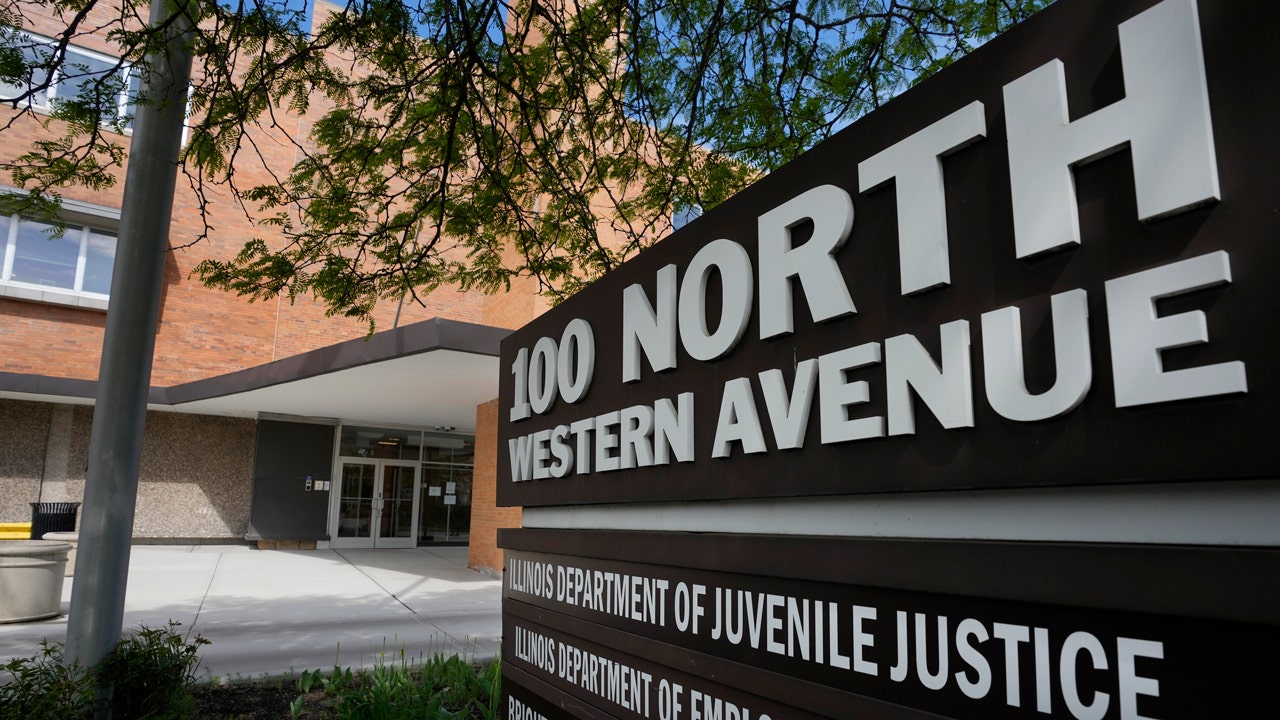Child sexual abuse at Illinois juvenile detention centers was pervasive and systemic for decades, according to disturbing accounts in a lawsuit filed Monday by 95 men and women housed at the youth centers as children.
The lawsuit details alleged incidents of abuse from 1996 to 2017, including gang rape, forced oral sex, beatings and groping of children by corrections officers, sergeants, nurses, therapists, a chaplain and others at nine youth centers. Many plaintiffs said they were threatened or rewarded to keep quiet.
JUVENILE MURDER SUSPECT ON THE RUN AFTER ESCAPING ST. LOUIS DETENTION FACILITY
“The State of Illinois has allowed a culture of abuse at Illinois Youth Centers to flourish unabated,” the 186-page complaint said.
The lawsuit, filed in the Illinois Court of Claims, follows similar harrowing allegations of child sex abuse at juvenile detention centers in Maryland, New Jersey, New Hampshire, California and New York City. Some cases have gone to trial or resulted in settlements; arrests have been infrequent.
The office building at 100 North Western Avenue is shown on Monday, May 6, 2024, in Chicago, where an office of the Illinois Department of Juvenile Justice is located. Child sexual abuse at Illinois juvenile detention centers was pervasive and systemic for decades, according to disturbing accounts in a lawsuit filed Monday by 95 men and women housed at youth centers as children. (AP Photo/Charles Rex Arbogast)
The Illinois lawsuit contends the state failed to supervise, discipline, remove or investigate alleged abusers, enabling the abuse to continue. The complaint alleges the abuse happened at youth centers in locations all over the state including Chicago, Joliet, Harrisburg, Murphysboro and Warrenville. Several locations have since closed.
The lawsuit names the state of Illinois, the state’s Department of Corrections and Department of Juvenile Justice as defendants. It seeks damages of roughly $2 million per plaintiff, the most allowed under law.
Messages left Monday with the governor’s office and both corrections agencies were not immediately returned.
The 95 plaintiffs are among hundreds of victims of sexual abuse at Illinois detention centers, said Jerome H. Block, an attorney who brought the case and who expects to file more lawsuits. His firm has helped bring lawsuits in Maryland, New Jersey and New York City.
“The very people that were entrusted with keeping our clients safe when they were children were the ones perpetrating the sexual abuse,” Block said. “This is long-term institutionalized sexual abuse.”
The Associated Press does not typically name people who say they were sexually assaulted unless they consent to being identified or decide to tell their stories publicly.
Three of the 95 plaintiffs are named in the lawsuit, including Jeffery Christian of Maywood, who said it was important to come forward publicly because he thought it could help others who may be suffering in silence.
The 36-year-old suburban Chicago man said he was sexually abused at two different detention centers beginning when he was about 13, including by a counselor who groped and fondled him during counseling sessions.
Like many of the plaintiffs, Christian said the abuse was reported at the time, but facility administrators did nothing to address it. He said reporting the abuse made him more of a target. After the incidents, he became withdrawn and anti-social.
“It prepared me to start looking at the world different,” he said. “It took some light out of me.”
At least six detention center workers were identified as alleged repeat offenders with separate accusations from different plaintiffs. Some alleged offenders are named in the lawsuit, while others are identified only as the plaintiffs remembered them by physical attributes, initials or nicknames. Most plaintiffs are identified by initials in the complaint.
Among other things, the complaint blames the state’s use of unconstitutional and systemic strip searches as perpetrating sexual abuse.
“The State of Illinois has had notice of such abuse for decades and nonetheless neglected to protect its confined youth from sexual abuse and failed to implement policies necessary to ensure such protection,” the complaint said.
It cites a 2013 U.S. Department of Justice survey of incarcerated youth that found Illinois was among the four worst states nationwide for sexual abuse in detention facilities. It also notes about half a dozen criminal cases from 2000 to 2021 where youth center employees were convicted of sexually abusing children and alleges that abuse continues to this day.
Criminal charges are not beyond the realm of possibility in some of the more recent cases. Although there’s no longer a statute of limitations on crimes related to the sexual abuse of minors occurring after Jan. 1, 2020, a 20-year limit remains on alleged offenses committed prior to that, allowing for the possibility of criminal charges in cases allegedly occurring as long ago as 2004.
Many plaintiffs said their abusers threatened them with violence, solitary confinement, transfers to harsher facilities and longer sentences if they reported the abuse. Others were given extra food, money in their commissary accounts, the chance to play videos games and other rewards if they kept silent.
The plaintiffs ranged in age from 12 to 17 at the time they said they were abused, often while they were isolated in a bathroom, kitchens or in their cells. When detainees reported abuse, the lawsuit said it was laughed off, with one lieutenant saying, “He’s just playing around,” or a chaplain who told a 17-year-old boy he allegedly fondled and was upset, “This is what goes on” in the church.
They are now adults, with the oldest in their early 40s. Most are men, but one of the detention centers was co-ed. They are from small communities and big cities, mostly in Illinois. Several are from Indiana, Wisconsin, Ohio, Iowa and Texas.
“Children, that are detained in juvenile detention centers, are especially vulnerable to sexual abuse. That’s because the staff working at these juvenile detention centers have complete and total control over these children,” Block said. “There is no way for these children to escape the abuse.”



